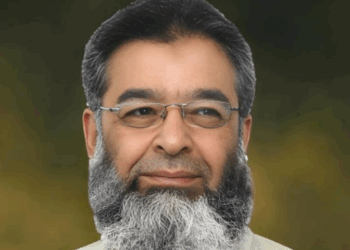By Ambareen Ali
Climate change is intensifying across the world. Talking about Pakistan, the country is experiencing frequent weather changes due to climate change. In November, instead of severe cold, there is confusion in the weather. During the day, the sun is strong, but at night, the cold becomes intense. Pakistan participated in COP29 to address these changes.
Pakistan focused on climate financing in COP29 because financing is urgently needed to tackle these changes. Pakistan became the first country to hold two separate panel discussions on climate finance at the 29th meeting of the United Nations Framework Convention on Climate Change (UNFCCC). Pakistan, which has consistently been one of the most affected countries by climate impacts, hosted these panels. The discussions focused on the urgent need for climate finance, especially for the Global South, which is most affected by climate disasters despite contributing little to global emissions.
The first panel, titled “Judicial Pathways Toward Climate Justice – Judicial Approaches to Tackling Climate Change Through Global Analysis,” was hosted by Justice Mansoor Ali Shah of Pakistan’s Supreme Court. Notable figures included Senator Sherry Rehman, Chairperson of the Senate Standing Committee on Climate Change, as well as senior judges from Nepal, Belgium, Brazil, and Pakistan. This panel discussed the increasing gap in climate finance, highlighting that developing countries need $4 trillion to address the impacts of climate change.
Currently, Pakistan ranks 30th in terms of climate change, placing it among the medium-performing countries. Pakistan has a low ranking in environmental policy, very low in renewable energy, and high emissions of greenhouse gases and energy consumption. However, at COP29, Pakistan conveyed messages on a football, emphasizing its commitment to addressing these changes, including safeguarding underground water life.
Pakistan set up a pavilion at COP29 and held large-scale panel discussions on climate change. On the other hand, India, which also faces climate change, did not set up a pavilion at COP29. This year, the Indian delegation was led by Leena Nandan, Secretary of the Ministry of Environment, Forests, and Climate Change, who discussed carbon policy and financing. Prime Minister Narendra Modi did not attend COP29, signaling a possible lack of attention from India towards climate change.
For Pakistan, the most significant development at COP29 was the creation of the first Climate Investment Fund by Hekiman, specifically focused on agriculture.
Pakistan raised issues like green financing, green economy, and carbon policy. This opportunity is extremely important for Pakistan, and it seems that with the plan Pakistan has developed to tackle climate change, the country will certainly cope with the climate challenges that started in 2022.







